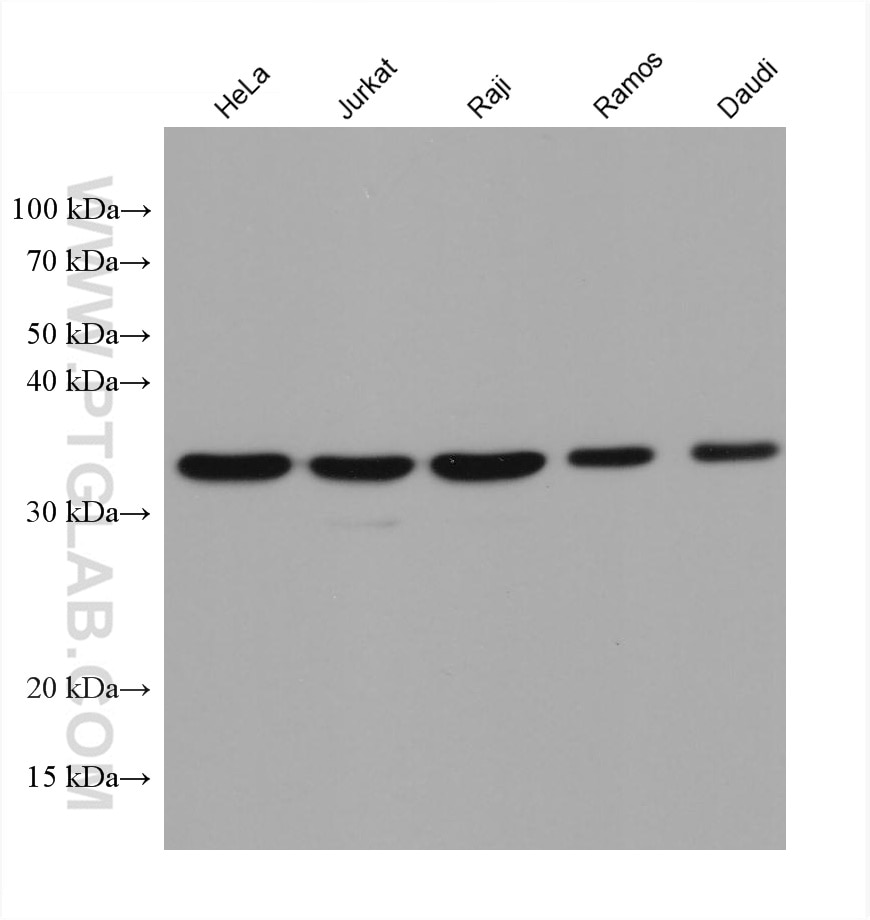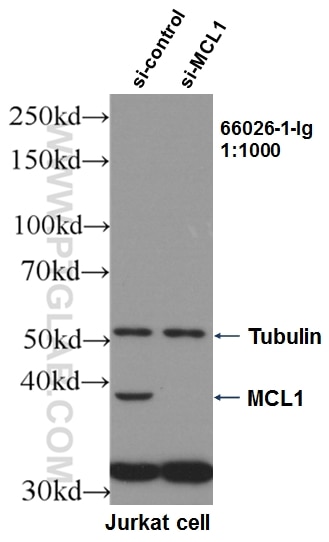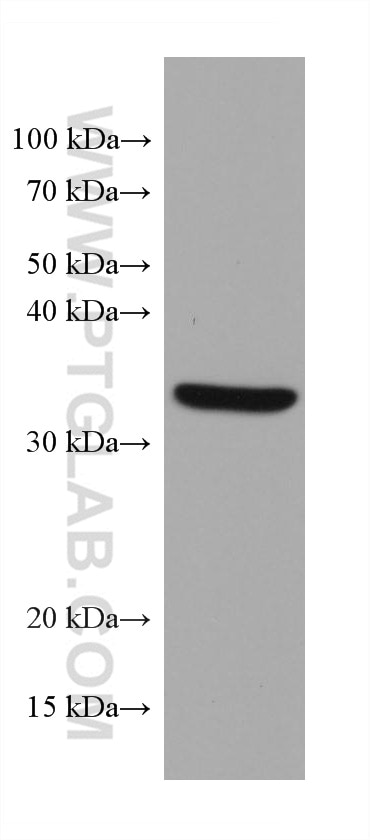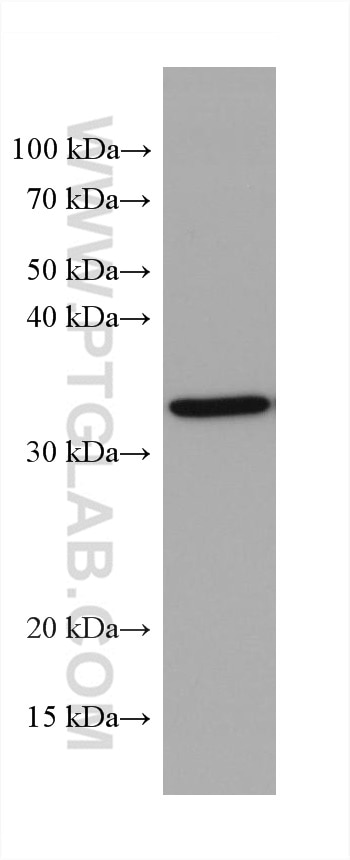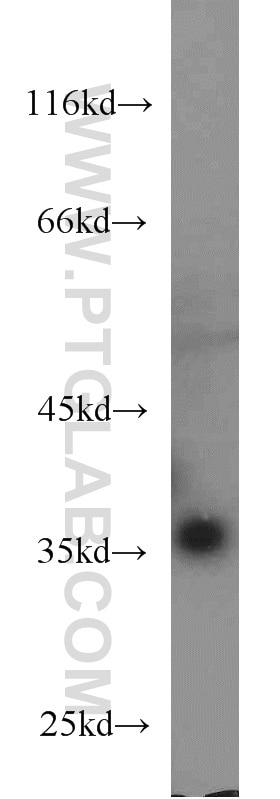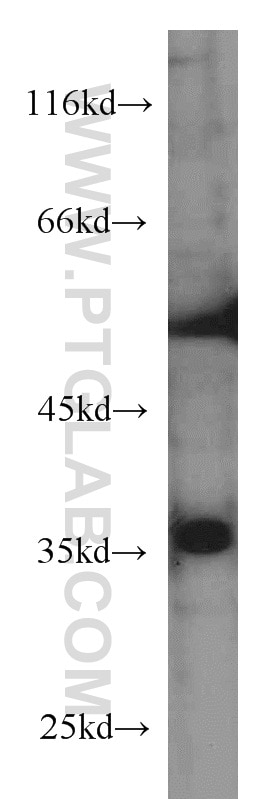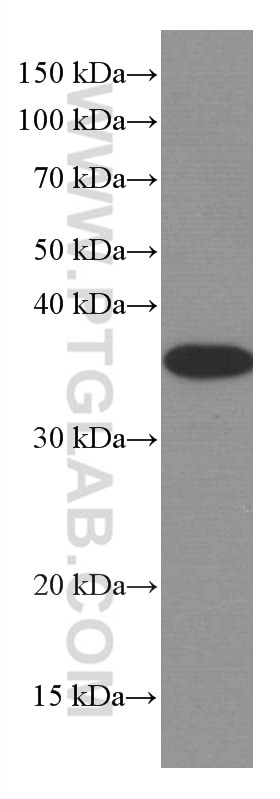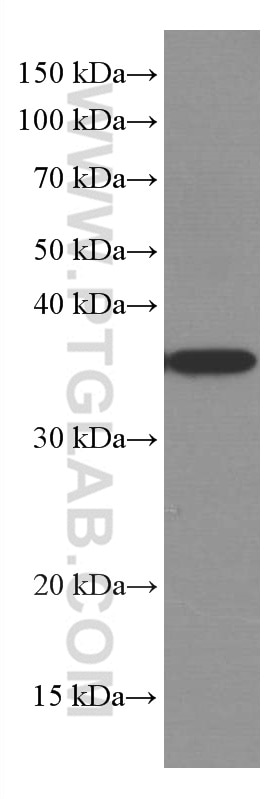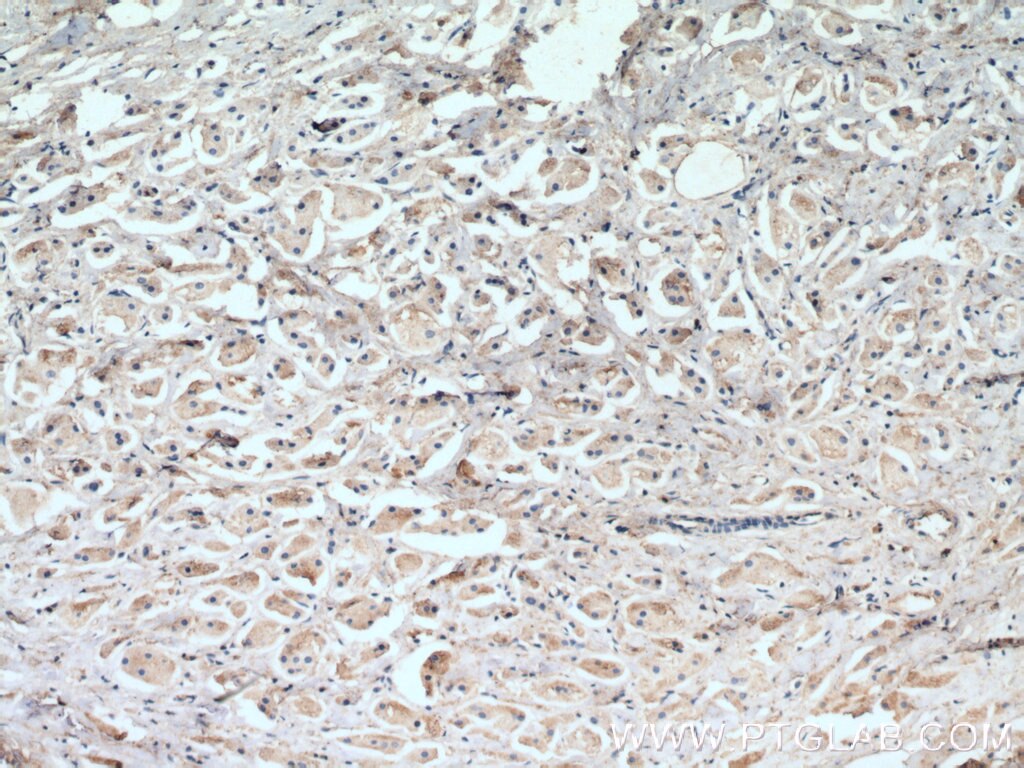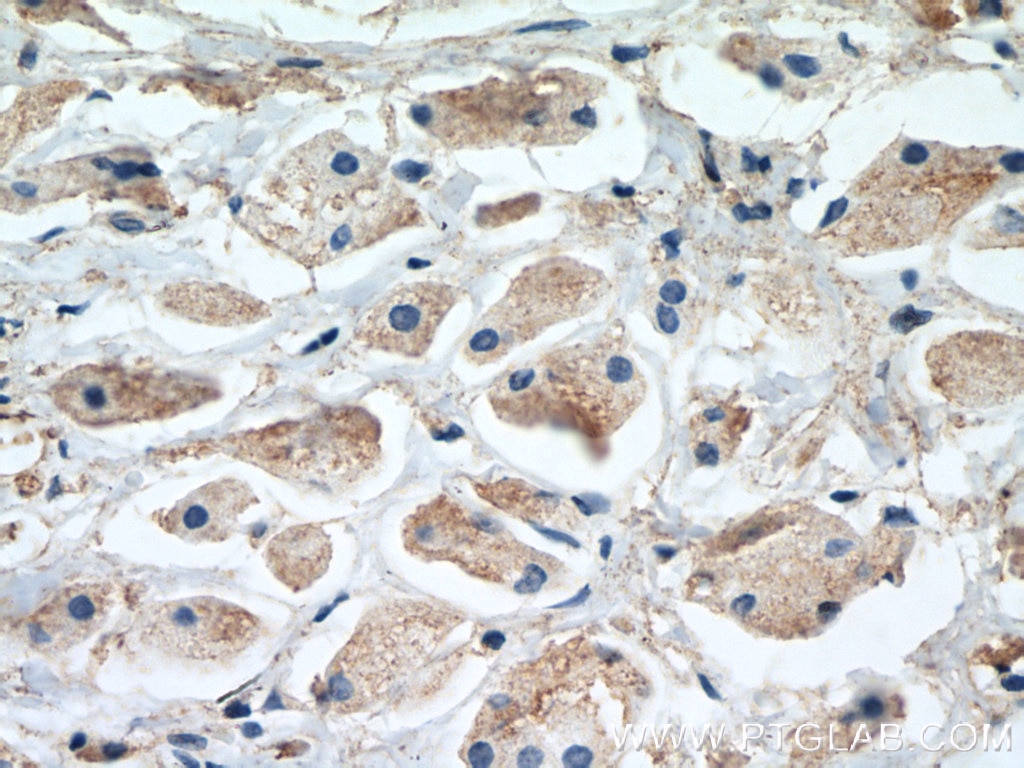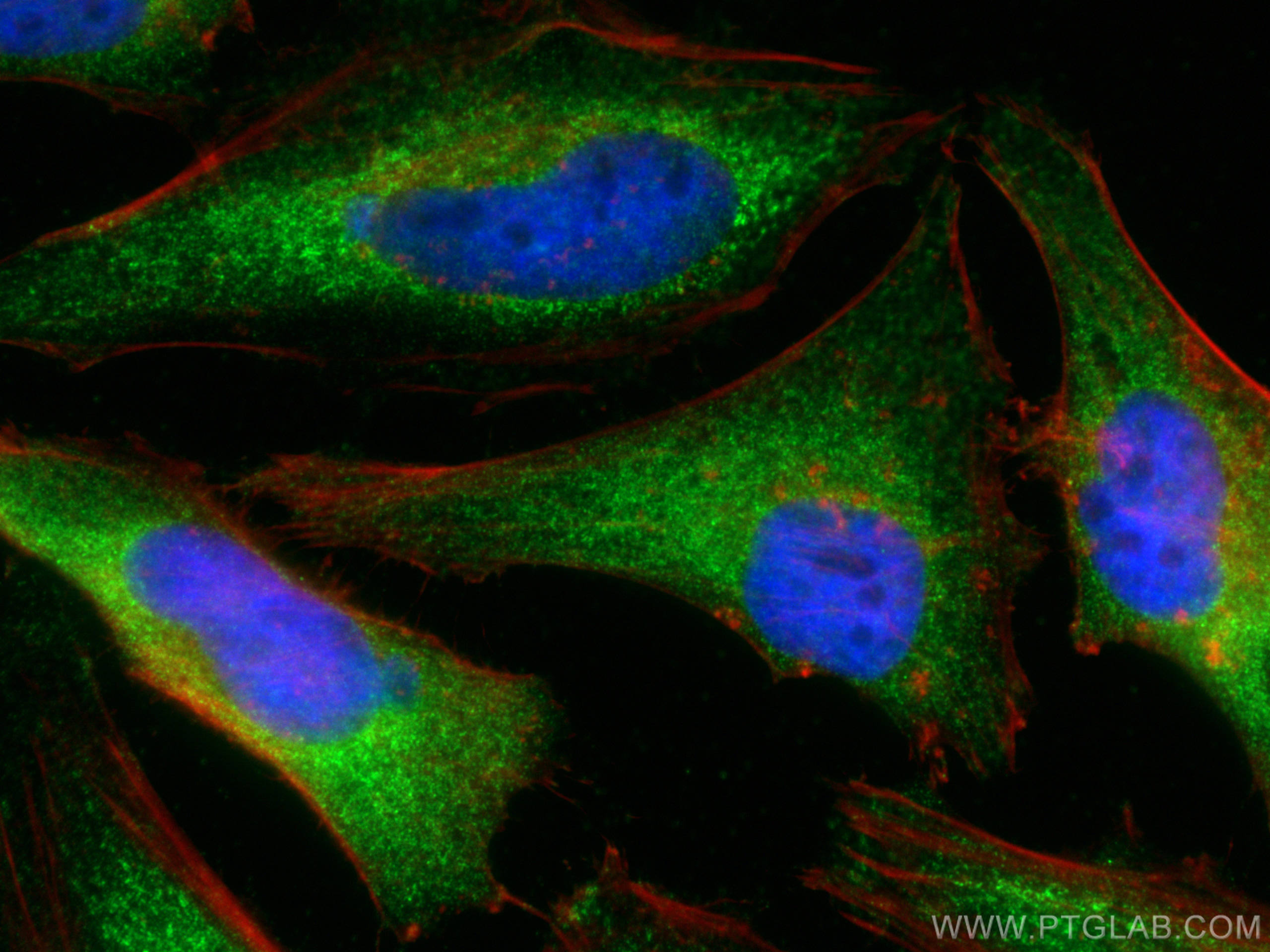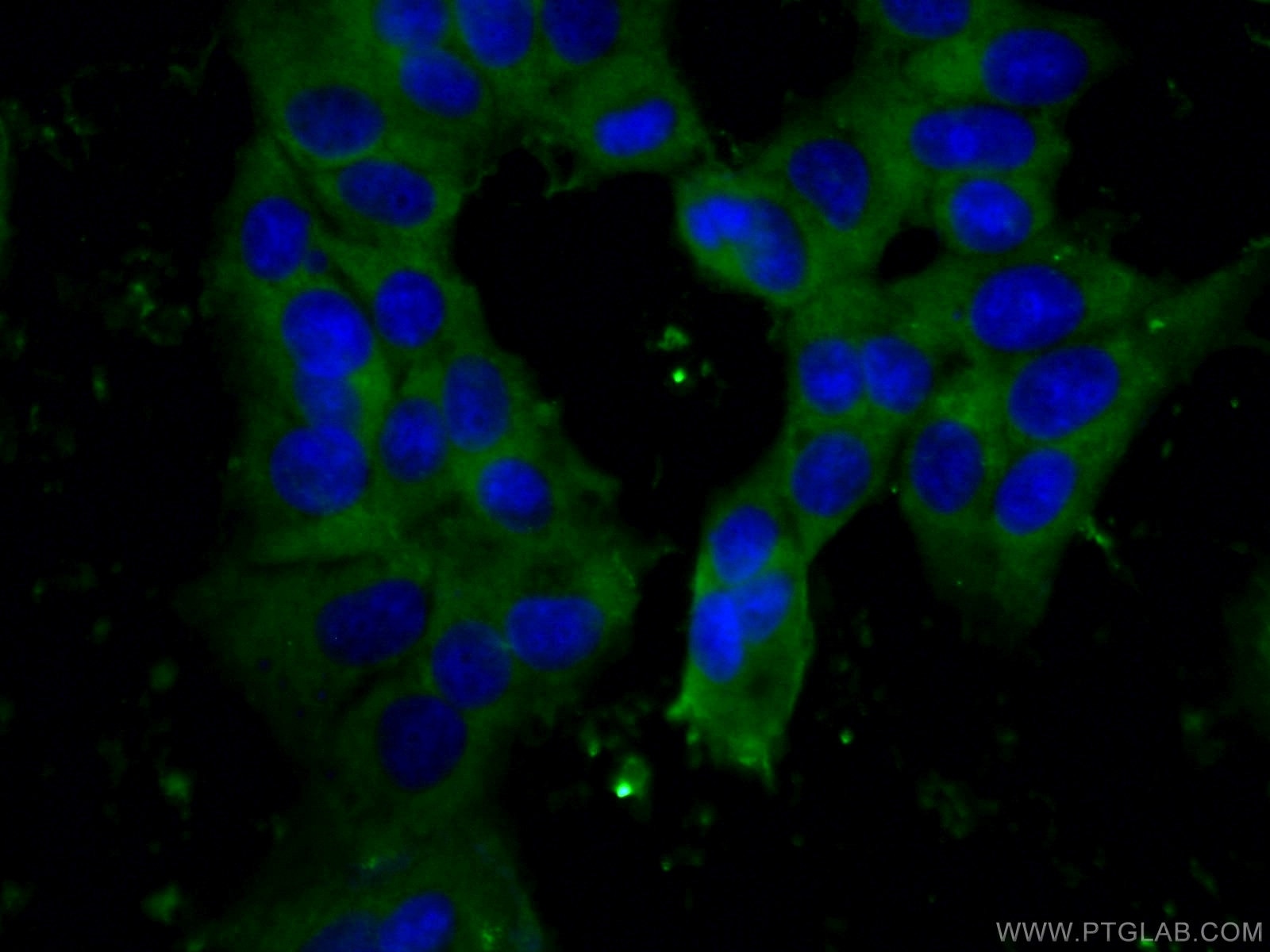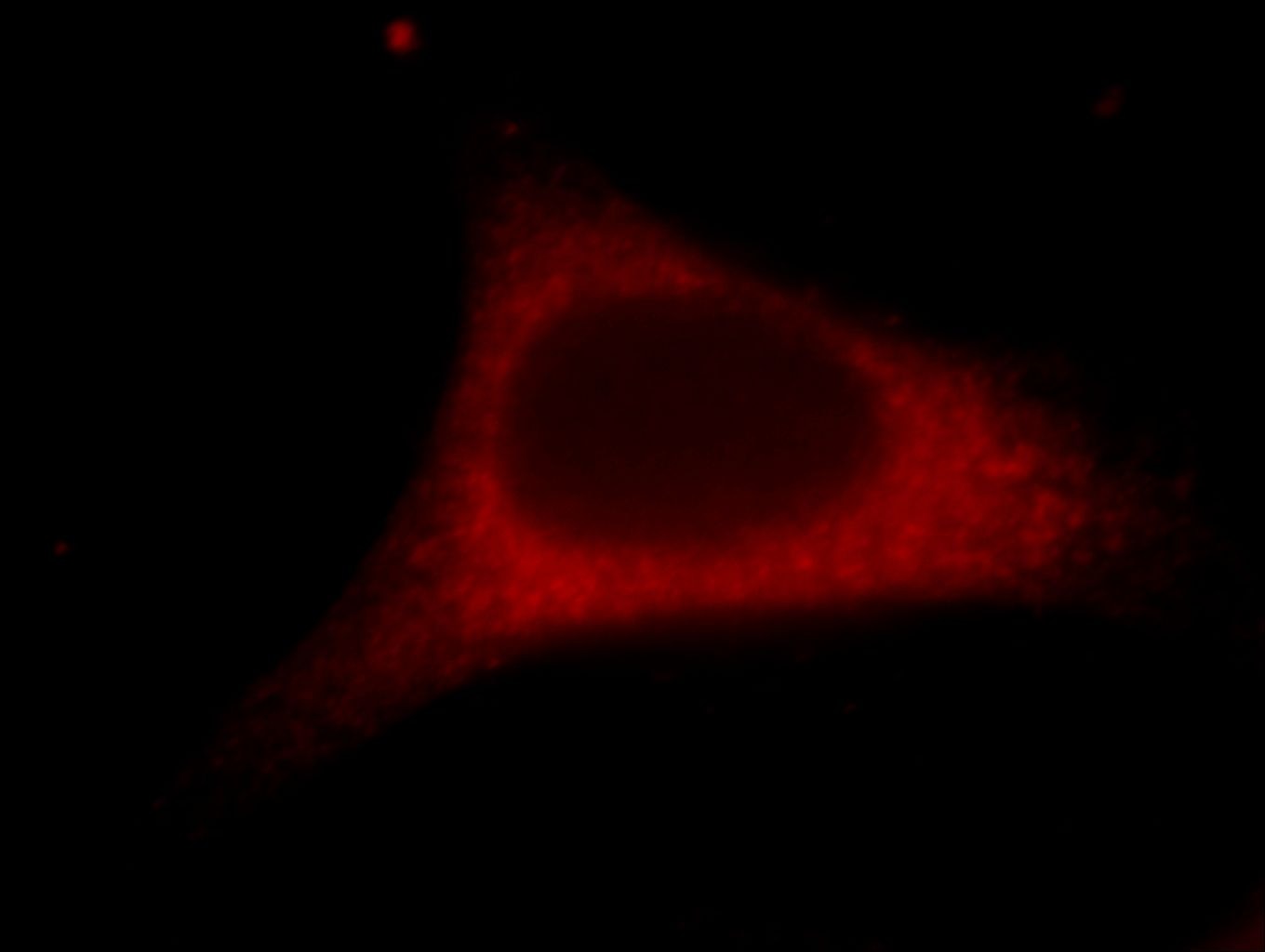Tested Applications
| Positive WB detected in | HeLa cells, A431 cells, A549 cells, Jurkat cells, Raji cells, Ramos cells, Daudi cells |
| Positive IHC detected in | human breast cancer tissue Note: suggested antigen retrieval with TE buffer pH 9.0; (*) Alternatively, antigen retrieval may be performed with citrate buffer pH 6.0 |
| Positive IF/ICC detected in | HeLa cells, MCF-7 cells |
Recommended dilution
| Application | Dilution |
|---|---|
| Western Blot (WB) | WB : 1:2000-1:10000 |
| Immunohistochemistry (IHC) | IHC : 1:250-1:1000 |
| Immunofluorescence (IF)/ICC | IF/ICC : 1:200-1:800 |
| It is recommended that this reagent should be titrated in each testing system to obtain optimal results. | |
| Sample-dependent, Check data in validation data gallery. | |
Published Applications
| WB | See 18 publications below |
| IHC | See 1 publications below |
| IP | See 1 publications below |
| CoIP | See 1 publications below |
Product Information
66026-1-Ig targets MCL1 in WB, IHC, IF/ICC, IP, CoIP, ELISA applications and shows reactivity with human samples.
| Tested Reactivity | human |
| Cited Reactivity | human, mouse, rat |
| Host / Isotype | Mouse / IgG2b |
| Class | Monoclonal |
| Type | Antibody |
| Immunogen | MCL1 fusion protein Ag10609 Predict reactive species |
| Full Name | myeloid cell leukemia sequence 1 (BCL2-related) |
| Calculated Molecular Weight | 350 aa, 37 kDa |
| GenBank Accession Number | BC107735 |
| Gene Symbol | MCL1 |
| Gene ID (NCBI) | 4170 |
| RRID | AB_11041711 |
| Conjugate | Unconjugated |
| Form | Liquid |
| Purification Method | Protein A purification |
| UNIPROT ID | Q07820 |
| Storage Buffer | PBS with 0.02% sodium azide and 50% glycerol pH 7.3. |
| Storage Conditions | Store at -20°C. Stable for one year after shipment. Aliquoting is unnecessary for -20oC storage. 20ul sizes contain 0.1% BSA. |
Background Information
MCL-1 is an anti-apoptotic member of the Bcl-2 family originally isolated from the ML-1 human myeloid leukemia cell line. Similar to BCL2 and BCL2L1, MCL1 can interact with BAX and/or BAK1 to inhibit mitochondria-mediated apoptosis. Mcl-1 is critical for the proliferation and survival of myeloma cells in vitro, and overexpression of Mcl-1 protein in myeloma cells is associated with relapse and short event-free survival in multiple myeloma patients. Recent studies show that MCL-1 is upregulated in numerous haematological and solid tumour malignancies. Therefore, MCL-1 has been suggested as a potential new therapeutic target.
Protocols
| Product Specific Protocols | |
|---|---|
| WB protocol for MCL1 antibody 66026-1-Ig | Download protocol |
| IHC protocol for MCL1 antibody 66026-1-Ig | Download protocol |
| IF protocol for MCL1 antibody 66026-1-Ig | Download protocol |
| Standard Protocols | |
|---|---|
| Click here to view our Standard Protocols |
Publications
| Species | Application | Title |
|---|---|---|
Int J Mol Sci Intermittent Fasting Aggravates Lupus Nephritis through Increasing Survival and Autophagy of Antibody Secreting Cells in MRL/lpr Mice. | ||
Biochim Biophys Acta Mol Basis Dis Extracellular ATP (eATP) inhibits the progression of endometriosis and enhances the immune function of macrophages | ||
Epigenetics Decreased DHRS2 expression is associated with HDACi resistance and poor prognosis in ovarian cancer. | ||
J Nat Prod Hernandezine Regulates Proliferation and Autophagy-Induced Apoptosis in Melanoma Cells. | ||
Mol Microbiol The emerging oral pathogen, Filifactor alocis, extends the functional lifespan of human neutrophils. | ||
Ann Transl Med Adipose-derived stem cells (ADSCs) inhibit the expression of anti-apoptosis proteins through up-regulation of ATF4 on breast cancer cells. |
